PREVIEW
Guests heard on Volume 138
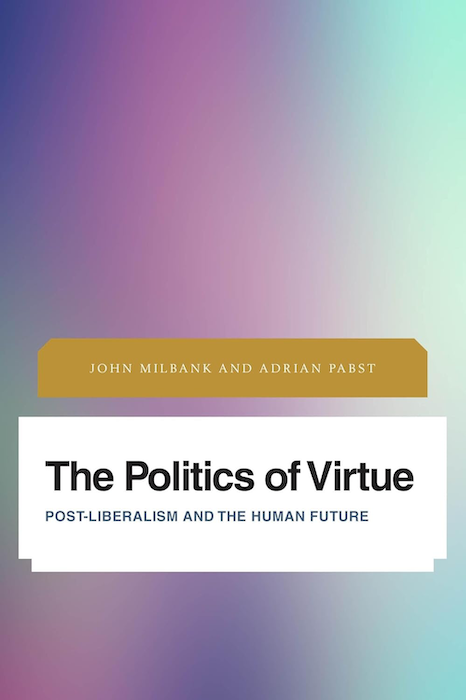
John Milbank, co-author of The Politics of Virtue: Post-Liberalism and the Human Future, on why politics needs to recognize the human soul (and what happens when it doesn’t)
read more
Adrian Pabst, co-author of The Politics of Virtue: Post-Liberalism and the Human Future, on the “metacrisis” of liberalism
read more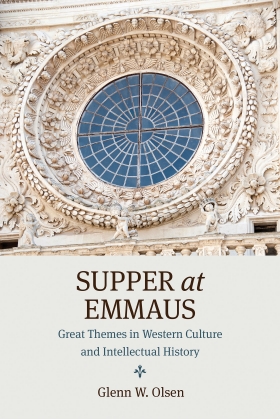
Glenn W. Olsen, author of Supper at Emmaus: Great Themes in Western Culture and Intellectual History, on Christopher Dawson’s understanding of religion and culture
read more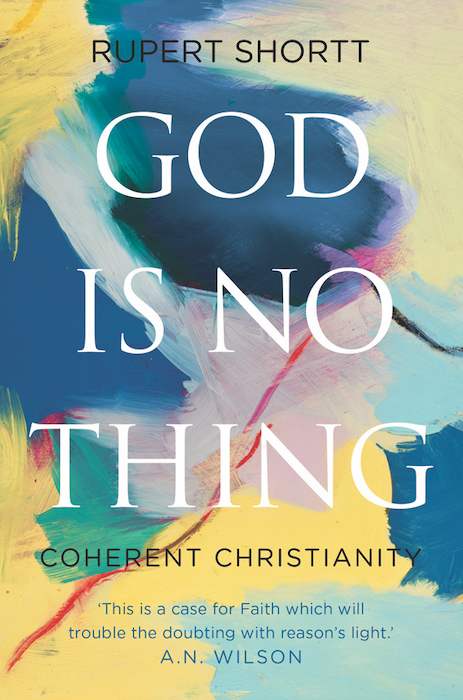
Rupert Shortt, author of God Is No Thing: Coherent Christianity, on how scientism misunderstands God and divine action
read more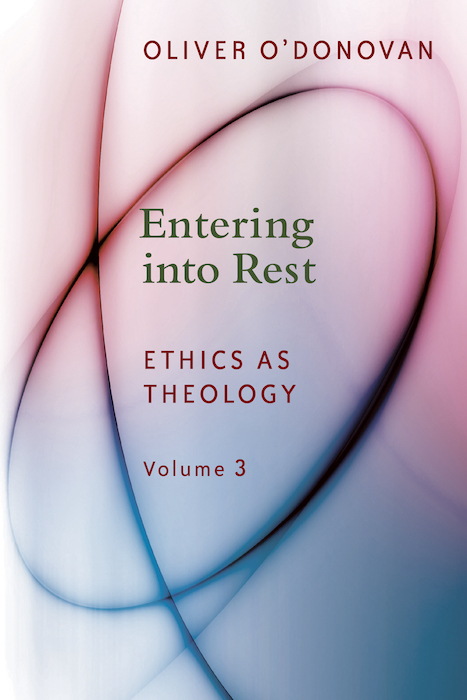
Oliver O’Donovan, author of Entering Into Rest, on the significance of love, community, and friendship as ethical and eschatological categories
read more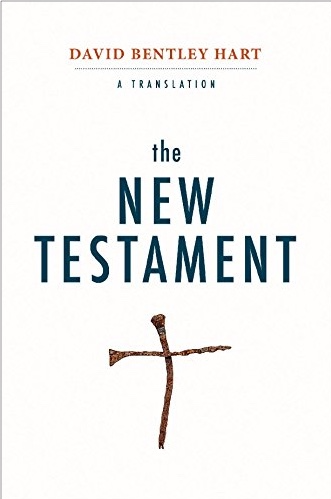
David Bentley Hart, translator of The New Testament: A Translation, on the hazards and delights of translating the New Testament
read moreRelated reading and listening
- Natural law as “performance” —
FROM VOL. 124 R. J. Snell discusses how novel ideas about natural law focus less on moral propositions and concepts and more on the thrust for meaning and value. (27 minutes) - A more robust account of political life —
FROM VOL. 138 John Milbank and Adrian Pabst on why politics needs to recognize the human soul in its depth (and what happens when it doesn’t). (51 minutes) - The collapse of public life —
FROM VOL. 154 D. C. Schindler explains how liberalism sought to make way for individuals to function together without any orientation to an explicit common good. (37 minutes) - To see people as people — Anthony Bradley argues that a recovery of Christian personalism is needed to counter the dehumanization, polarization, and tribalism of our day. (45 minutes)
- An impoverished anthropology —
FROM VOL. 146 Mark Mitchell asks whether there is anything that truly binds Americans together beyond their commitment to self-creation. (34 minutes) - A brief for “prophetic Thomism” — David Decosimo on assuming a charitable posture toward pagan virtue
- Insights from St. Thomas’s biblical exegesis — Jason Paone explains how St. Thomas’s commentaries reveal the saint’s personality, his rhetorical flair, and the Christocentric vision that underlie all his work. (24 minutes)
- Against hacking babies — Oliver O’Donovan raises questions about IVF and the technologically ordered motive for efficiency
- Impact of “infotainment” on community — Neil Gabler and C. John Sommerville discuss how the mentalities conveyed by our experience with communications media work against the nurturing of community. (36 minutes)
- Liberalism’s self-destructive dynamic — T. S. Eliot on the social need to move toward something and not just away
- Recognizing the Puritan flavor of “America” — George McKenna on the originally theocentric vision for the American vocation
- The fraught marriage of liberty and equality — In this essay, Patrick Deneen examines Alexis de Tocqueville’s complex and insightful portrait of “democratic man” living in the context of perpetual societal tension between the excesses of liberty and equality. (39 minutes)
- Critiquing “empire criticism” — Allan Bevere and Peter Leithart evaluate “empire criticism,” a way of reading the New Testament with an anti-imperial focus. (36 minutes)
- The fatal polytheism of late liberalism — Oliver O’Donovan on the failure that leads to social collapse, marked by conflict, suspicion, and violence
- The recovery of true authority for societal flourishing — Michael Hanby addresses a confusion at the heart of our current cultural crisis: a conflation of the concepts of authority and power. (52 minutes)
- A metaphysics of realism, relationality, and personalism — John Milbank gives a survey and critique of the efforts of 20th and 21st century theologians to articulate a Trinitarian ontology that reflects reality and counters secularization. (61 minutes)
- Why liberalism tends toward absolutism — In this lecture, Michael Hanby examines what causes liberalism to become dictatorial in thought and practice. (49 minutes)
- Is liberalism compatible with religious freedom? — D. C. Schindler relies on two Thomistic axioms to illustrate why liberalism — which claims to offer a minimalist conception of the common good — is ultimately incompatible with a Catholic understanding of religious freedom. (34 minutes)
- Christopher Hitchens vs. G. K. Chesterton — Ralph Wood compares Christopher Hitchens‘s view of the cosmos with that of G. K. Chesterton, arguing that Chesterton succeeded where Hitchens failed. (44 minutes)
- Only a dying civilization neglects its dead — Historian Dermot Quinn discusses the work of fellow historian Christopher Dawson (1889–1970). (15 minutes)
- Christopher Dawson: Chronicler of Christendom’s Rise and Fall — Dermot Quinn discusses historian Christopher Dawson’s meta-historical perspective and his wisdom about what makes cultures healthy or unhealthy. (54 minutes)
- Insisting that political leaders are incapable of obeying Christ — Oliver O’Donovan on the unintended consequences of the First Amendment to the U.S. Constitution.
- What makes a great historian? — John Lukacs on how historian Christopher Dawson displayed a proper nostalgia
- The gift of objective reality — Moral philosopher Oliver O’Donovan makes an argument for the consistency of the idea of law when it is conceived in a theological context. (40 minutes)
- Friendship and life together — In a lecture at Providence College, Ken Myers explores how the concept of friendship, which used to be central to political philosophy, was banished from considerations of public life as the state was exalted over society. (53 minutes)
- Freedom as conformity to reality — W. Bradford Littlejohn summarizes the definitions of liberty offered by Richard Bauckham and Oliver O’Donovan
- Faith and unbelief —
FROM VOL. 98 This Archive Feature revisits two conversations, one with Roger Lundin and one with David Bentley Hart, on what makes Christian belief so implausible to non-believers. (39 minutes) - Creation as beauty and gift —
FROM VOL. 67 David Bentley Hart describes how the Christian understanding of Creation as beauty and gift, as the outward expression of the delight the Trinity has in itself, reveals a vision of reality different from the pagan or fatalist vision of reality. (12 minutes) - Mechanism and the abolition of meaning — On the occasion of philosopher Daniel Dennett’s death this week, Ken Myers presents an archive interview with David Bentley Hart in which he explains how pure naturalism leads to the un-doing of rationality. (37 minutes)
- Materialism and the problem of mind — David Bentley Hart on the evasiveness implicit on all efforts to explain away human consciousness
- Dreary atheist fundamentalism — David Bentley Hart defends the naturalness of religious belief against the assertions of the Naturalists
- The infinity of beauty in Bach — David Bentley Hart on why Johann Sebastian Bach is the greatest of Christian theologians
- Rejecting “two-tiered” Thomism —
FROM VOL. 155 David Bentley Hart on how “two-tier Thomism” deviates from historic Christian understanding of the relationship between God and Creation. (42 minutes) - The sovereignty of love — In this 2022 lecture, Oliver O’Donovan explains the historical background — and present consequences — of the assertion by Jesus of two great commands. (67 minutes)
- O’Donovan, Oliver — FROM THE GUEST PAGE: Oliver O’Donovan held teaching posts at Wycliffe Hall, Oxford and Wycliffe College Toronto before becoming Regius Professor of Moral & Pastoral Theology and Canon of Christ Church at the University of Oxford in 1982.
- Why kings are compelling — Historian Francis Oakley describes how the modern idea of “secular” politics is a striking departure in human history. (32 minutes)
- Christology and human relationality — Joseph Ratzinger on how the longing for eternity expressed in human love is an analogue of Trinitarian love
- Mars Hill Audio Journal, Volume 159 — FEATURED GUESTS: Kirk Farney, Andrew Willard Jones, James L. Nolan, Jr., Andrew Kaethler, Peter Ramey, and Kathryn Wehr
- Conscience seared with a red-hot iron — Oliver O’Donovan on the convicting role of a good conscience
- Culture in light of Easter — Oliver O’Donovan rejects a gnostic reading of redemption
- With virtue, harmony, & charity — Kevin Vost traces a Christian development of the meaning of friendship throughout history, particularly as it is understood through the incarnation of Christ. (18 minutes)
- The basic act and order of things — David L. Schindler (1943–2022) insists that the reduction of love to a matter of private and personal sentiment, piety, or good will — is one of the fundamental disorders of modern culture. Christians should know better. (39 minutes)
- Challenging the “gospel of democracy” — Robert Kraynak argues that assumptions many modern Christians hold about liberal democracy are rooted in some false ideas about the nature and purpose of civil government. (46 minutes)
- What makes our desires and action intelligible — David Bentley Hart on why we must believe that human beings are by nature inclined to the super-natural
- Recovering a sacramental imagination — Hans Boersma argues that we need to recover the pre-modern view that Creation not only points to God, but that it participates in the very being of God — that in God we live and move and have our being. (29 minutes)
- Mars Hill Audio Journal, Volume 155 — FEATURED GUESTS: Donald Kraybill, Thaddeus Kozinski, David Bentley Hart, Nigel Biggar, Ravi Scott Jain, and Jason Baxter
- Mars Hill Audio Journal, Volume 154 — FEATURED GUESTS: Felicia Wu Song, Michael Ward, Norman Wirzba, Carl Trueman, D. C. Schindler, and Kerry McCarthy
- Religion within the bounds of citizenship — In a 2006 lecture, Oliver O’Donovan argues that the conventional way of describing Western civil society creates obstacles to the participation of believers (Muslim, Christian, and other). (68 minutes)
- Republican freedom — and ideological flexibility — Mark Noll on the novelty of America’s Christian republicanism
- The purpose of government and God’s eternal purpose — Philip Turner on understanding the state in light of the eschatological reality of the Church